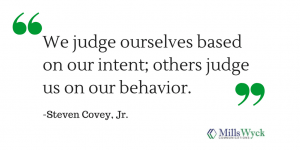Sound Like You Feel
Expressing passion in public speaking is critical in all aspects of our daily communication. When it comes to selling – your product, your ideas, your goals – we often fail to convince others of the passion and commitment we feel inside. Since passion, confidence, and enthusiasm are inferred from our actions, it’s crucial to SHOW these critical components and not rely on our audience to INFER from our content or implications. The outcome: misunderstanding, loss of buy-in, and missed opportunity.
When coaching on how to express passion in public speaking, it’s a recurring argument, and I know it’s coming. “I want to appear authentic!” It’s a noble intent. Who doesn’t want to be true to themselves?! But how you FEEL about yourself and how others OBSERVE you can be miles apart, and this chasm causes problems for speakers.
As part of a talk I gave, I was demonstrating how passion in public speaking and this discrepancy looks. I had a volunteer from the audience talk about something that was important to them. I don’t recall the topic: human rights, feeding the hungry, world peace, saving the whales, spaying your pet. Whatever. He talked for about 90 seconds and I stopped him. I asked the audience, “On a scale of one to ten, how passionate do you think he appears about this topic?” People shouted out numbers, as low as two, and as high as six. Our volunteer speaker was aghast – perhaps even angry. He almost shouted, “I would DIE for this!” An audience member shouted back, “Then show us!” It was a powerful moment of realization for him. And us.
This difference in perception identifies the problem. We know 
Here’s another way to prove how expressing passion in public speaking (or any communication you have during the day) and how others judge our behavior is true. Think about a person who has really upset you while driving. Perhaps they cut you off, followed too closely, drove slowly in the passing lane, nearly crashed while texting, or stole your parking place. What do you think of them? You don’t know them, but you have some choice words – perhaps four letters long – to describe these social outcasts. But what about your driving? Have you ever committed such an egregious act? What do you think of yourself? Honest mistake? Lapse of judgment? Or perhaps even, “Wow – I’m good!” Then consider what other drivers are thinking of you!
It’s behavior that drives people’s impressions of us.
Which brings us back to a speaker’s behavior and how to appear authentic to the audience. If you want to drive the impression you are passionate about your topic, what should you do? People who don’t know you won’t even care about your ACTUAL passion, they will only judge you based on your demonstrated passion—your behavior. Want to give folks the impression you are glad to be on stage (usually accompanied with a dry, “I’m so happy to be here…”)? Then you need to LOOK happy.
It’s simple to understand. And easy to think you can do it. Until… you see a video of yourself. We get two comments from our workshop participants over and over when they watch video of themselves before they receive coaching. “I thought I smiled more!” And… “What am I doing with my hands?!” Those behaviors are sending out a message. The question becomes, what does your audience think that message is?
Being authentic does not mean you only present in a manner that makes you feel good. You may argue that you’re just not that demonstrative. Neither was I. Until… I decided that the impression I made on my audience mattered more than how I felt. If it takes making huge gestures to convince someone that I’m passionate and want their help, then I’ll flap my arms until I fly. If modulating my voice can move someone to action, then I’m willing to practice speaking in whatever tone will work. I think that’s about as authentic as someone can be—matching the opportunity on the stage with a result that the speaker is convicted about.
This realization is not enough. These skills must be practiced with the careful eye of a person or group who love you enough to tell you the truth. Bigger! More! We want CRAZY! Because that’s what it feels like. But it just looks… passionate.
Sounding like you feel—and not presenting to feel good—is a skill that is hard to master, but ultimately worth the effort because of the reaction and response you will get from your audience.
Communication matters, what are YOU saying?
This article was published in the March 2018 edition of our monthly speaking tips email, Communication Matters. Have speaking tips like these delivered straight to your inbox every month. Sign up today and receive our FREE download, “Twelve Tips that will Save You from Making a Bad Presentation.” You can unsubscribe at any time.



